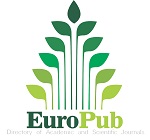The Contribution of Nuṣrat-ul-‘Ulūm Gujranwala’s Graduates to Religious Leadership in Pakistan: A Analytical Study
Abstract
This study examines the contributions of graduates from Nuṣrat-ul-‘Ulūm , Gujranwala, to religious leadership in Pakistan. Established as a prominent Islamic seminary in 1952, Nuṣrat-ul-‘Ulūm has significantly influenced the landscape of Islamic education and leadership in the country, particularly in Gujranwala City. The research investigates the diverse roles played by its graduates in various spheres, including religious education, roles as Imāms and Khatībs, religious journalism, Islamization efforts, welfare activities, community leadership, social reform, and political engagement. Through a qualitative analysis of institutional records, interviews with alumni, and case studies of notable graduates, the study highlights how the seminary’s curriculum and pedagogical approaches equip individuals with the intellectual and spiritual tools necessary for religious leadership. The findings reveal that the seminary has not only produced influential religious scholars (‘ulāmā) but has also extensively contributed to intra-faith and interfaith dialogue, the issuance of fatāwa to address community issues, and the resolution of religious problems faced by society in Pakistan. The research also explores the seminary's emphasis on traditional Islamic sciences and its adaptability in addressing contemporary challenges. By contextualizing the contributions of these graduates within Pakistan’s socio-political and religious framework, the study underscores their pivotal role in shaping religious discourse and societal development. This study provides valuable insights into the transformative potential of Islamic seminaries in cultivating leadership that effectively addresses
the religious needs of Pakistani and global Muslim societies, while equipping them to meet modern challenges and preserve Islamic identity and heritage. It contributes to broader discussions on the evolution of religious education and leadership in contemporary Muslim societies.
Keywords: Nuṣrat-ul-‘Ulūm Gujranwala, Religious Leadership, Islamic Education, Ulama Contributions and Pakistan Socio-religious Dynamics











